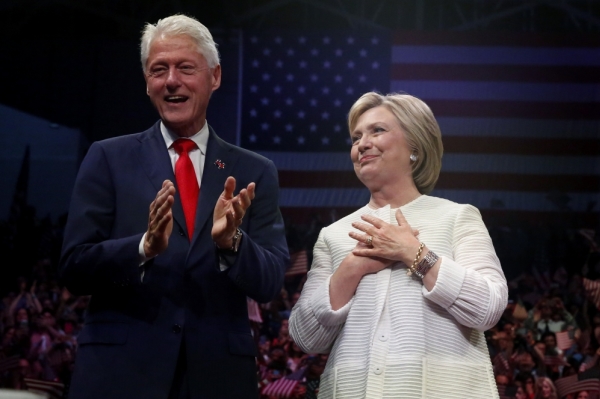Judge strikes down Arkansas law banning puberty blockers, trans surgeries for minors

A federal judge has struck down an Arkansas law that seeks to ban sex change surgeries and interventions like puberty blockers or cross-sex hormones for minors with gender dysphoria. The state plans to appeal the ruling.
U.S. District Judge James M. Moody, Jr. of the Eastern District of Arkansas issued the decision on Tuesday, striking down House Bill 1570, also known as the Save Adolescents From Experimentation Act or Act 626. The billy was signed into law in 2021.
"It is widely recognized in the medical and mental health fields that, for many people with gender dysphoria, the clinically significant distress caused by the condition can be relieved only by living in accordance with their gender identity, which is referred to as gender transition," wrote Moody, who was appointed to the bench in 2014 by former President Barack Obama.
"If Act 626 takes effect, adolescents whose parents and doctors agree that gender-affirming medical care is appropriate treatment for their gender dysphoria will be unable to receive that care in their home state and unable to get referrals from their doctors to receive care in other states. This will cause irreparable harm to the Plaintiff adolescents, Plaintiff parents and Plaintiff doctor."
Moody wrote that while "gender-affirming medical treatments can have potential risks and side effects," he believes these risks were "not categorically different than the types of risks that other types of pediatric healthcare pose."
"For these reasons, the Court finds that the State has failed to prove that its interests in the safety of Arkansas adolescents from gender transitioning procedures or the medical community's ethical decline are compelling, genuine, or even rational," he continued.
The American Civil Liberties Union, which helped to represent four families of trans-identified youth and two doctors who sued the state, celebrated the ruling.
"This ruling offers an enormous relief to transgender youth and their families across Arkansas and across the country," said Chase Strangio, deputy director for Transgender Justice at the ACLU's LGBTQ & HIV Project, in a statement.
"We hope that this sends a message to other states about the vulnerability of these laws and the many harms that come from passing them. We're so thankful for the bravery of our clients and the tireless work of advocates in Arkansas."
Arkansas Attorney General Tim Griffin said in a statement that his office will appeal the Moody decision before the U.S. 8th Circuit Court of Appeals.
"I am disappointed in the decision that prevents our state from protecting our children against dangerous medical experimentation under the moniker of 'gender transition,'" said Griffin.
"Unfortunately, Judge Moody misses what is widely understood across the United States and in the United Kingdom and European countries: There is no scientific evidence that any child will benefit from these procedures, while the consequences are harmful and often permanent. I will continue fighting as long as it takes to stop providers from sterilizing children."
The SAFE Act was passed after lawmakers overruled a veto by then-Gov. Asa Hutchinson, a Republican. That made Arkansas the first state in the nation to ban the use of puberty blockers and elective cosmetic gender surgeries on youth.
About 20 other states have followed suit in enacting policies banning sex change surgeries or hormonal interventions on minors with gender dysphoria. A court order is preventing Alabama from enforcing a similar law.
In February 2022, the American Academy of Family Physicians, the American Academy of Pediatrics, the American College of Obstetricians and Gynecologists, the American College of Physicians, the American Osteopathic Association and the American Psychiatric Association issued a joint statement denouncing state efforts to criminalize what they call "gender-affirming care" for minors.
Internationally, other governments and medical bodies appear to be taking more cautious approaches to how gender dysphoria is being treated amid an exponential rise in children being referred for gender identity intervention.
Earlier this month, England's National Health Service announced that it is restricting access to puberty blockers to clinical research, citing concerns about "significant uncertainties surrounding the use of hormone treatments."
Sweden, the first country to introduce a legal gender transition, has restricted hormone intervention for minors except in rare cases. In December, Sweden's National Board of Health and Welfare stated that mastectomies for teenage girls struggling with their gender identity should be limited to a research setting, AFP reports.
A feature news article published by The New York Times last November showed that an increasing number of medical professionals and formerly trans-identified people, also called detransitioners, are concerned about the unknowns surrounding the long-term harmful effects of puberty blockers and cross-sex hormones.





















